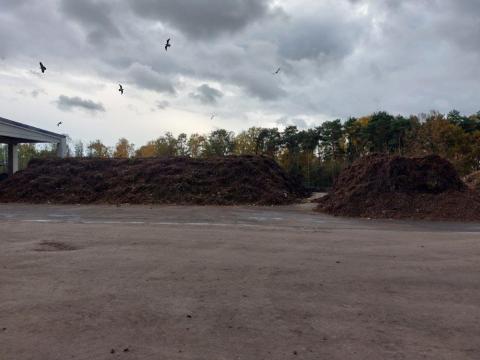Legislative Framework on Biowaste Management and Composting in Brandenburg

About this good practice
In order to shift the waste management system from a linear towards a circular economy and to implement the legal framework set by the European Union into national laws Germany adopted multiple laws and regulations on a national level.
At federal level the Circular Economy Act (KrWG) aims to promote the circular economy in order to conserve natural resources and to ensure public welfare and protect the environment. The KrWG sets the legal framework of waste management and addresses to the separated collection of wastes. The Biowaste Ordinance (BioAbfV) sets the requirements concerning the sanitising treatment, pollutants and application of biowastes, while the Fertiliser Application Ordinance (DüV) defines the criteria for maximum amount of nutrients applied on agricultural land.
The Federal Immission Control Act (BImSchG) and its 44 ordinances ensure integrated prevention and control of harmful effects on the environment and human being caused by emissions to air, water and soil by regulating maximum emissions of the biowaste processing sector.
The Ordinance of Landfills (DepV) prohibits the disposal of wastes with TOC more than 6 w/w % on landfills.
At state level, the Waste Act of Brandenburg (BbgAbfG) defines the duties of the public waste authorities regarding waste management on regional level.
The Act of Biowaste Disposal of Brandenburg (AbfKompVbrV) permits composting on private land, while the burning of organic and garden waste is commonly prohibited.
Resources needed
The laws and regulations dealing with biowaste – as every law – are developed and enacted by the federal or the state legislator and executed by the administrative body.
The costs are borne by the national taxpayers as a whole.
Evidence of success
The state-of-the-art in waste management system including biowaste is the result of a long development process over the last 30 years. With the legal framework conditions, not only the separate biowaste collection, but also treatment and utilization by composting or fermentation has increased and 2 anaerobic digestion plants have been installed.
In 2020 in Brandenburg almost 69.000 t of biowaste waste and approx. 154.000 t of green waste were collected, what is equal to 27 kg/capita and year.
Potential for learning or transfer
Although the member states of the EU have to ensure that biowaste is collected separately or recycled at source (e.g. by composting) by December 31, 2023 according the Directive (EU) 2018/851, biowaste still makes up a high percentage in municipal waste. The prohibition of the disposal of organic waste on landfills is a major step to reduce greenhouse gas emissions from landfills and to implement the source separation and the recycling of biowaste. Also, the prohibition of burning of biowastes for private households and criteria for proper biowaste processing in plants addresses to the reduction of greenhouse gas emissions.
The demand for separate waste collection is crucial for the possibility to further process biowastes, gaining energy and recycling nutrients. However, the method how biowaste is collected, treated and processed has to be adapted to regional conditions.
